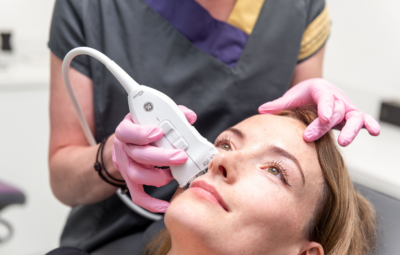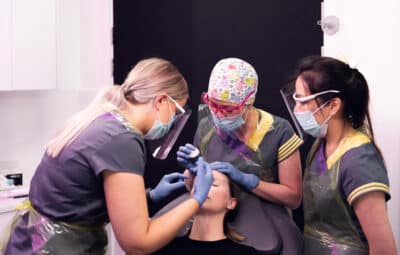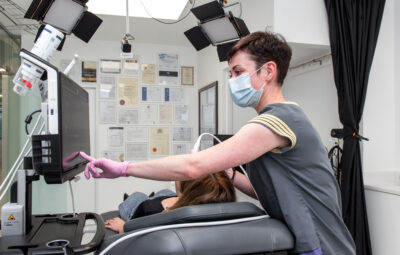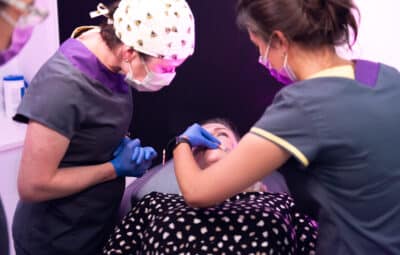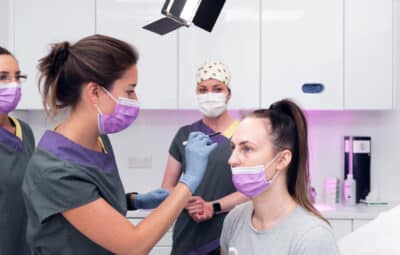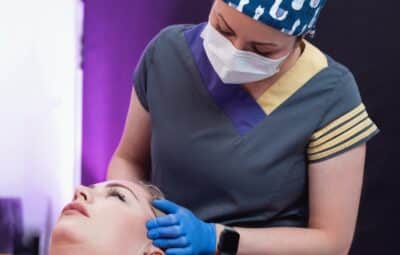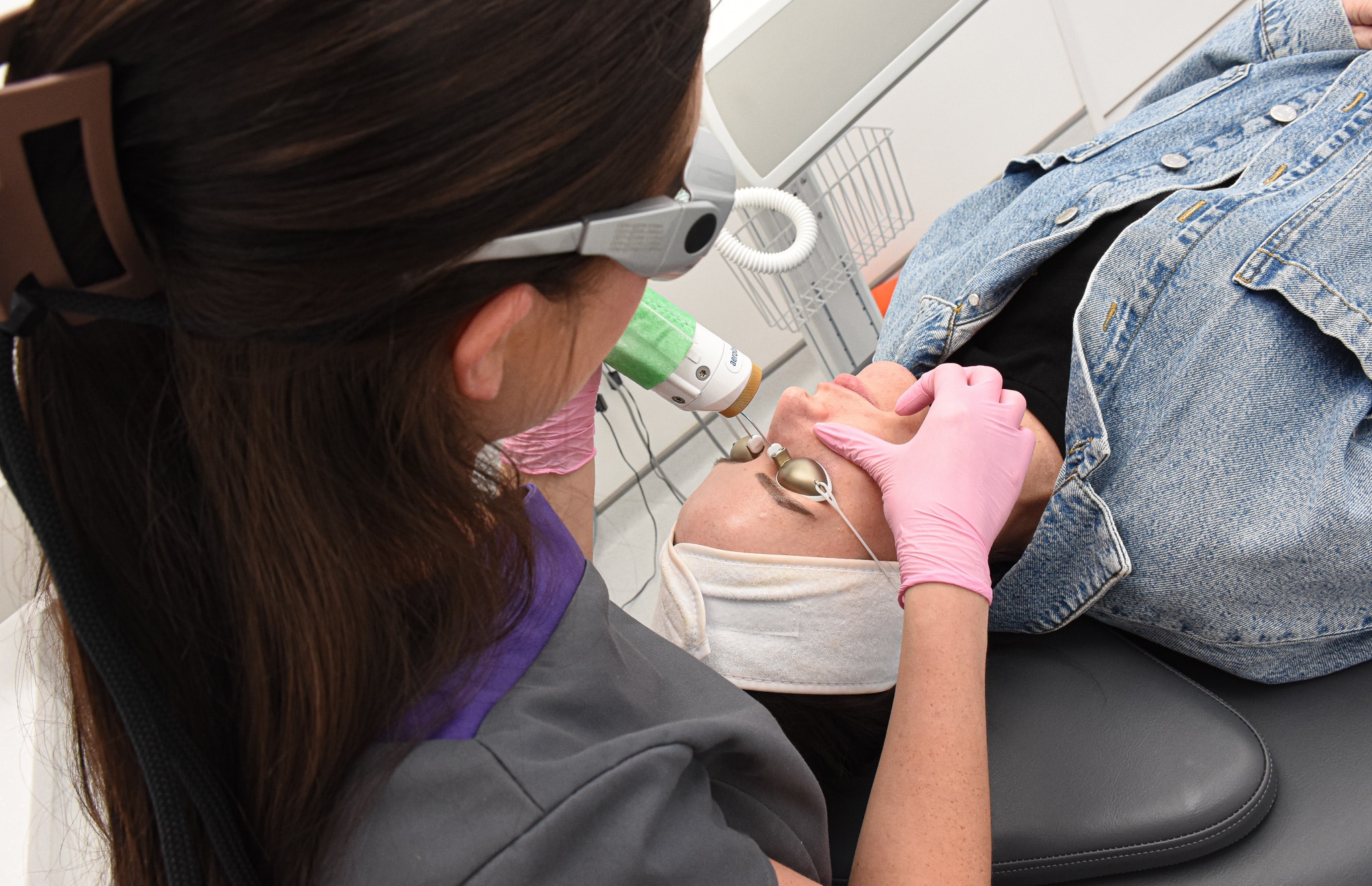
Laser Skin Resurfacing Liverpool: Myths, Facts, and Proven Benefits
20 June 2024
In this post:
- Discover how laser skin resurfacing can dramatically improve your skin by reducing acne scars, fine lines, wrinkles, and so much more.
- Learn about the different types of lasers used for skin resurfacing treatments. Each laser type has its own unique set of skin concerns it targets, from textural irregularities to hyperpigmentation concerns.
- Go in-depth of what the laser treatment entails, including how to prep, what to expect during the procedure, and must-know aftercare tips.
- Keep an eye out for the next two posts in our three part laser blog series.
Laser skin resurfacing, also known as a laser peel, is an advanced dermatological procedure that transforms the skin’s appearance to diminish and remove skin imperfections like acne scars, fine lines and wrinkles, and hyperpigmentation.
Laser treatment is one of our patient’s favourite aesthetic treatments, and it’s rapidly becoming the go-to for those looking for unbeatable rejuvenation and skin tightening.
There are many types of lasers on the market, and most of them work similarly. They use concentrated laser beams to precisely remove the outer layers of the skin. This promotes the growth of new collagen and skin cells that look smoother, tighter, and more evenly textured.
Laser skin treatments can treat the following skin concerns:
• Fine lines & wrinkles
• Textural irregularities
• Sun damage
• General hyperpigmentation
• Rosacea
• Active acne
• Sagging skin
• Acne scars
• Age spots
• Uneven skin tone
• Warts
• Spider veins/thread veins
• Enlarged pores
• Rough skin
Laser skin resurfacing is the preferred choice for individuals seeking to reduce fine lines and scarring without use of injectables.
Whether you’re an aesthetic practitioner looking to incorporate laser resurfacing into your practice or a patient trying to decide if laser is right for you, this article will act as a comprehensive guide that covers everything you need to know about skin lasers.
This post is part one of our three part series on laser skin resurfacing. Part two will discuss the different types of lasers in more detail. Part three will explore why laser devices are at the forefront of aesthetic industry trends.
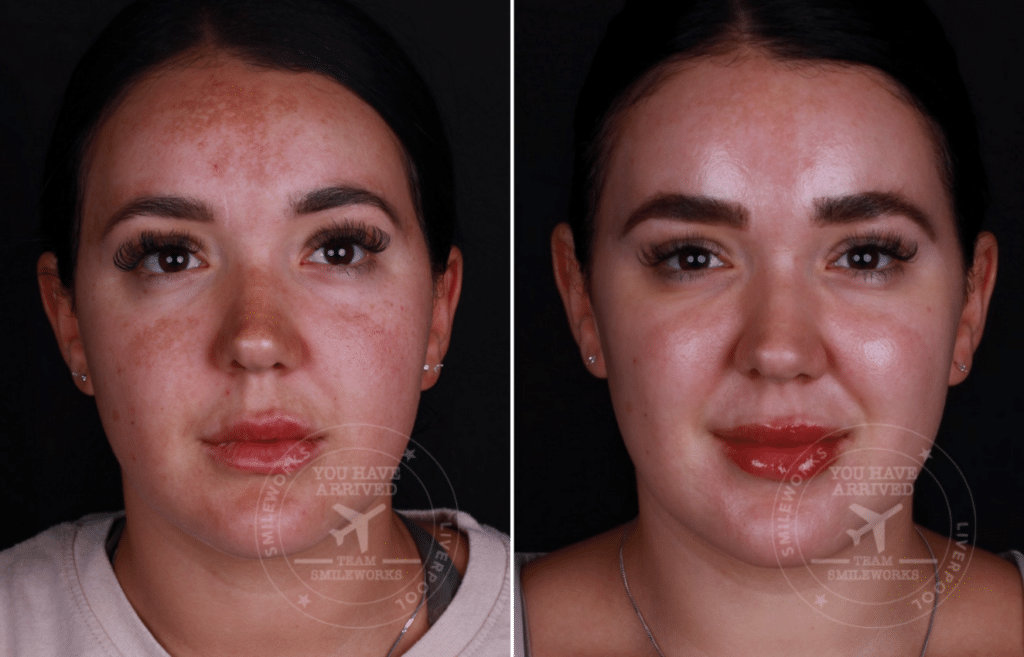
Types of Lasers
There are two types of skin lasers: the ablative laser and the non-ablative laser. Each comes with their own set of benefits.
Ablative lasers are more invasive, making them highly effective in treating severe wrinkles, pronounced scars, and significant sun damage. They vaporise the outermost layers of the skin and heat the underlying layer to stimulate collagen production. Recovery time for ablative lasers can be anywhere between a few days to three weeks. The most common ablative lasers include the CO2 and Erbium YAG lasers.
Non-ablative lasers are less invasive and work by heating the underlying skin tissue without removing the top layers. This laser is best for treating hyperpigmentation, rosacea, age spots, and even active acne. Because of its non-invasive nature, recovery times are quick and there is less discomfort than with an ablative laser. The most common non-ablative lasers include the Neodymium YAG, IPL, and Pulsed Dye lasers.
The fractional laser (or Fraxel), another common type of laser, can be ablative or non-ablative. This laser is unique in that it only targets a fraction of the skin at a time. This allows for faster healing and reduces the risk of complications, while still creating impressive results.
For more information on each laser, see part two of this series for a deep dive into the types of laser treatments for the face to determine which laser is best for your needs.
The Ideal Laser Candidate
The good news is most people are excellent candidates for laser skin resurfacing.
If you struggle with acne scars, laser treatment is a sure-fire way to lessen the appearance of your scarring.
If you want to diminish your wrinkles and fine lines without using injectable anti-ageing treatments, skin lasers are a great option.
If you have an uneven skin tone from sun damage or ageing, laser resurfacing can rejuvenate and renew your skin beyond your wildest dreams.
The beauty of laser treatment is its ability to treat an array of skin conditions, making it the ideal treatment for the majority of patients. However, laser skin resurfacing is not for everyone. There are certain medical conditions and physical traits that come with greater risks for complications.
Laser is not always suitable for:
- Those with active acne: While non-ablative lasers are a great option for acne treatment, ablative lasers must be avoided if you have active acne as it can irritate the blemishes and make them worse. This increases the risk of acne scarring. If you want laser resurfacing for acne scars, you must wait until your acne is under control.
- Those with very dark skin tones: While those with darker skin tones can still have laser treatment, they’re limited by the type of laser. Erbium YAG and non-ablative lasers can be good options for those with dark skin, but more intense lasers like CO2 should be avoided.
- Those with overly sagging skin or deep wrinkles: Laser skin resurfacing can only do so much. If you struggle with incredibly deep wrinkles or excessively sagging skin, laser treatment simply isn’t effective. Injectable and surgical treatments will provide better results.
What to Expect
Before the Procedure
It’s critical that you take the necessary steps to prepare for treatment. These essential steps help to achieve the best results possible from this treatment.
Patients should:
- Avoid sun exposure: Protect your skin from the sun by applying broad-spectrum sunscreen daily, even on rainy or cloudy days. While this should already be a step in your skincare routine, you should make sure to do this at least one month before the procedure.
- Alter skincare regimen: Your clinician will recommend a skincare routine to prep for the treatment. This may include adding in or taking away products from your normal routine. This varies person to person and laser to laser, so be sure to consult your clinician.
- Quit smoking: Smoking can significantly impair the healing process and increase risk of complications. Stop smoking at least two weeks before and after the procedure to guarantee better healing and results.
- Adjust medication: Always inform your clinician about any medications or supplements you’re taking. Some of these, such as blood thinning medications, may need to be stopped prior to the procedure.
- Take prescribed antiviral medication: If you have history of cold sore/herpes infections, your clinician may advise you to take antiviral medication to prevent an outbreak.
During the Procedure
Laser skin resurfacing is almost always an outpatient treatment. The duration of the treatment, however, depends on the area you’re having treated and the specific laser you’re getting. It can be anywhere between thirty minutes to a couple hours.
STEP ONE: Anaesthesia
For more intense lasers, local anaesthesia, sedation, or general anaesthesia may be administered to ensure comfort during the procedure. Less intense lasers usually do not require this.
STEP TWO: Laser Treatment
After cleansing the skin, your clinician will use the laser device to direct concentrated beams of light at the targeted areas of your skin. You’ll feel a sensation similar to a rubber band snapping against the skin. Your skin will also start to feel hot like a bad sunburn. While this can be uncomfortable, your clinician will always use pain management techniques to minimise discomfort.
STEP THREE: Post-procedure Care
Depending on the severity of the laser, your clinician may cover your skin in bandages to promote healing and prevent complications. If it’s a less intense laser, a semi-occlusive water-free ointment like Aquaphor or Vaseline is applied to protect the skin from dehydrating. Your clinician will give you specific aftercare instructions to follow in the days and weeks after your treatment.

Aftercare & Recovery
Be sure to follow the aftercare instructions provided by your clinician. Proper aftercare is critical for successful healing and ensures the best results possible. While it’s common to experience redness and swelling for a few days after your procedure, following your after care instructions can prevent more severe side effects like prolonged redness, scarring, pigmentation, and infection.
Here are some essential tips for the recovery process:
- Cold packs: In the hours and days following your procedure, your skin can feel uncomfortably hot. Cold packs can help reduce swelling and any discomfort.
- Barrier creams: Use the recommended barrier cream (Aquaphor, Vaseline, etc.) from your clinician to keep your skin moist and prevent scabs from forming. This also helps promote faster healing and reduces risks for scars.
- Avoid sun exposure: Wear a broad-spectrum SPF whenever you go outside after your treatment. Direct sunlight can cause skin damage and interfere with the healing process.
- Follow-up appointment: Don’t miss your follow-up appointments. This is how your clinician will monitor the healing process and address any concerns that may come up.
- Gentle skincare: Avoid active skincare ingredients like retinols and acids. These can irritate the healing skin. Use the simple, gentle skincare routine recommended by your clinician.
Laser Skin Resurfacing Cost UK
The cost of laser skin resurfacing can vary depending on several factors including the type of laser used, the size of the treatment area, and the practitioner’s expertise. In the UK, you can expect ablative lasers to cost between £500 and £1500 and non-ablative lasers to cost between £200 and £1000.
For some, one ablative session might be enough to reach their skin goals, but most will require multiple sessions. Because laser skin resurfacing is considered a cosmetic procedure, it is not included under the NHS.
If you get laser treatment for a condition like acne scars or hyperpigmentation, the results are permanent with proper skincare. However, anti-ageing benefits are not permanent as our skin continues to age every day. While the full benefits of laser resurfacing can last many months or even years, it cannot put a stop to the natural ageing process. To prolong the effects of treatment, top-up treatments are recommended.
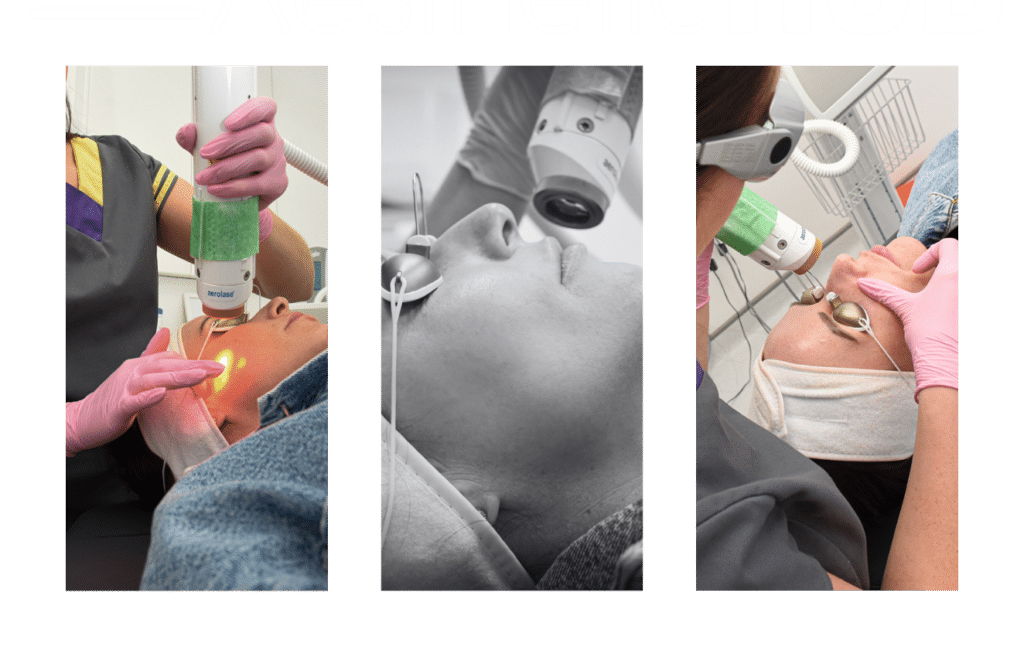
The Best Laser Skin Resurfacing in Liverpool
Laser skin resurfacing is a powerful and in-demand treatment for achieving flawless, youthful skin, and there’s no better place in the UK to get it than Smileworks Liverpool. At Smileworks we use the game-changing Aerolase laser system which consists of the Era, an ablative Erbium YAG laser, and the Neo, a non-ablative Neodymium YAG laser.
Ready to explore how laser skin treatment can help you unlock your most confident self? Get in touch today, and we can schedule your consultation with our experienced laser technician.
Are you an aesthetic practitioner looking for more information on how lasers fit into current aesthetics industry trends? Check out part three of our laser blog series.
